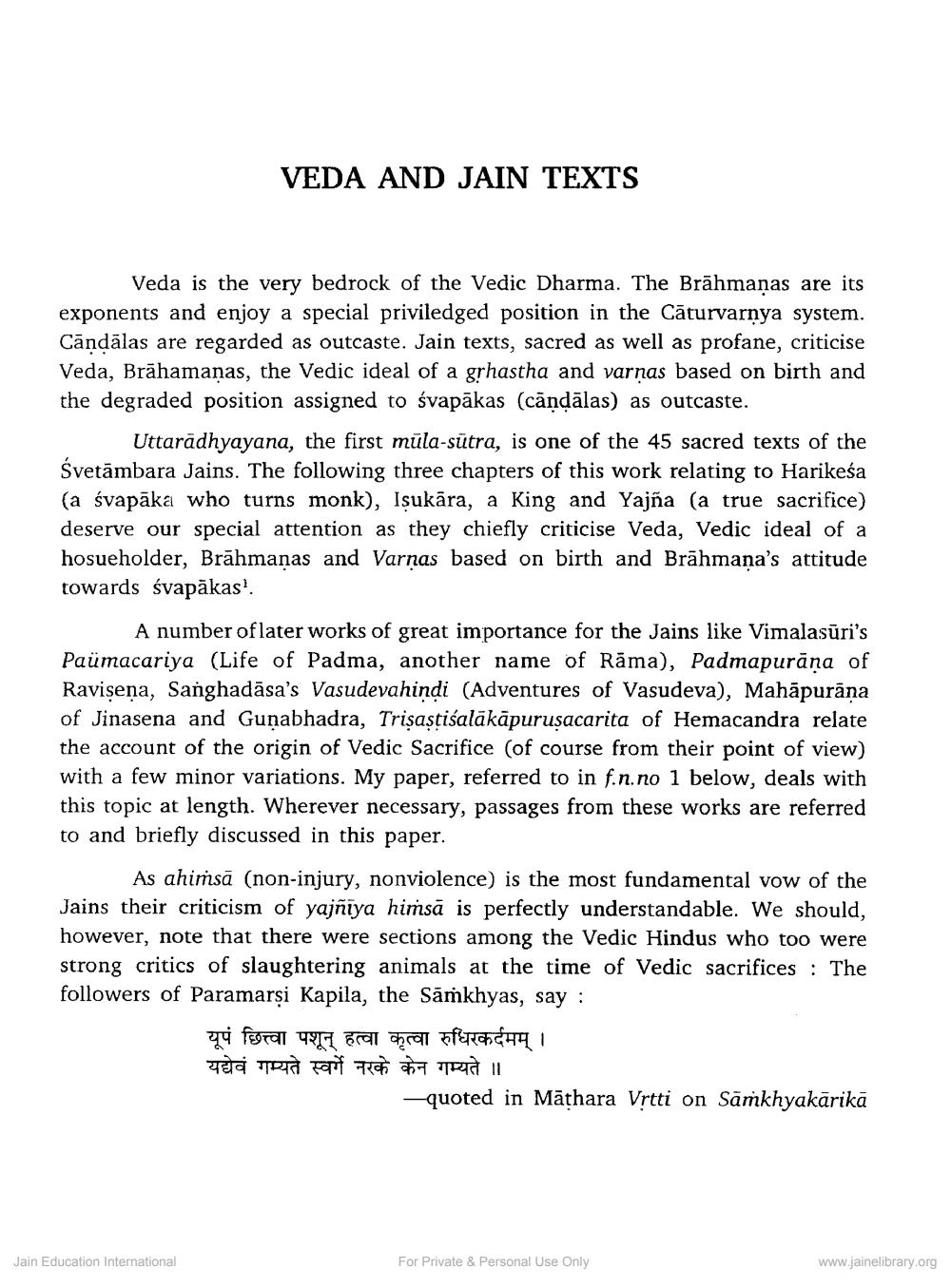________________
VEDA AND JAIN TEXTS
Veda is the very bedrock of the Vedic Dharma. The Brāhmanas are its exponents and enjoy a special priviledged position in the Cāturvarnya system. Candalas are regarded as outcaste. Jain texts, sacred as well as profane, criticise Veda, Brāhamanas, the Vedic ideal of a grhastha and varnas based on birth and the degraded position assigned to śvapākas (cāndālas) as outcaste.
Uttarādhyayana, the first mūla-sútra, is one of the 45 sacred texts of the Svetāmbara Jains. The following three chapters of this work relating to Harikeśa (a svapāka who turns monk), Isukāra, a King and Yajña (a true sacrifice) deserve our special attention as they chiefly criticise Veda, Vedic ideal of a hosueholder, Brāhmanas and Varnas based on birth and Brāhmana's attitude towards śvapākas!
number of later works of great importance for the Jains like Vimalasūri's Paümacariya (Life of Padma, another name of Rāma), Padmapurāna of Ravişeņa, Sanghadāsa's Vasudevahindi (Adventures of Vasudeva), Mahāpurāna of Jinasena and Guņabhadra, Trișaștiśalākāpuruşacarita of Hemacandra relate the account of the origin of Vedic Sacrifice (of course from their point of view) with a few minor variations. My paper, referred to in f.n.no 1 below, deals with this topic at length. Wherever necessary, passages from these works are referred to and briefly discussed in this paper.
As ahimsā (non-injury, nonviolence) is the most fundamental vow of the Jains their criticism of yajñiya himsā is perfectly understandable. We should, however, note that there were sections among the Vedic Hindus who too were strong critics of slaughtering animals at the time of Vedic sacrifices : The followers of Paramarşi Kapila, the Samkhyas, say:
यूपं छित्त्वा पशून् हत्वा कृत्वा रुधिरकर्दमम् । यद्येवं गम्यते स्वर्गे नरके केन गम्यते ॥
—quoted in Māthara Vrtti on Samkhyakārikā
Jain Education International
For Private & Personal Use Only
www.jainelibrary.org




